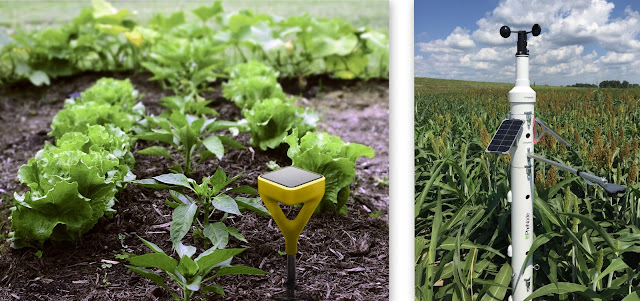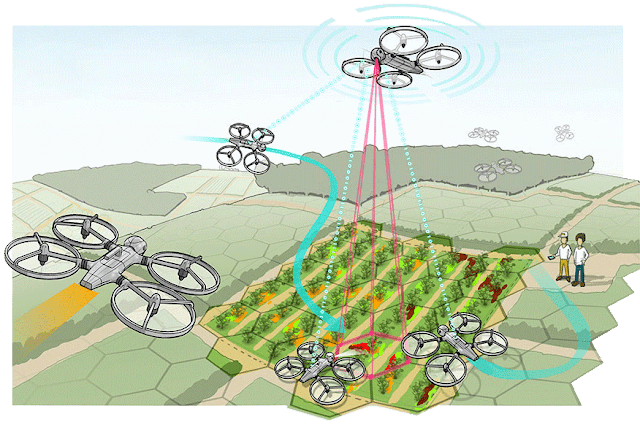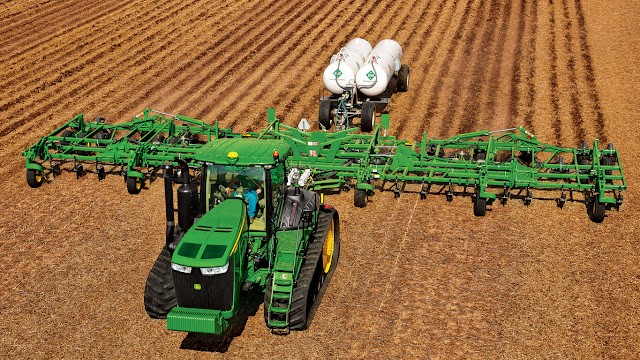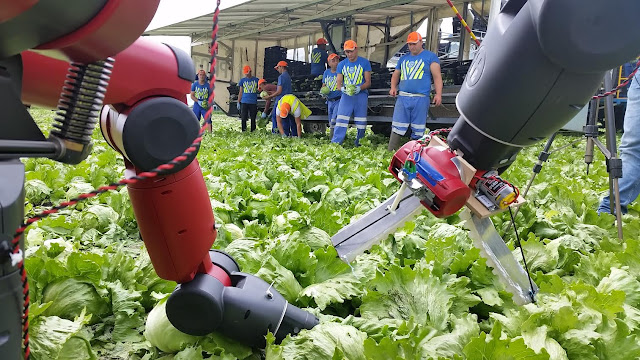Future Agriculture Technologies That Will Change the World
February 09, 2018
Technologies related to agricultural (Agriculture Technologies) and natural manufacturing under four key areas of accelerating change: Sensors, Food, Automation and Engineering. Sensors help agriculture by enabling real-time trace ability and diagnosis of crop, livestock and farm machine states. Food may benefit directly from genetic tailoring and potentially from producing meat directly in a lab. Automation will help agriculture via large-scale robotic and micro robots to check and maintain crops at the plant level. Engineering involves technologies that extend the reach of agriculture to new means, new places and new areas of the economy. Of particular interest will be synthetic biology, which allows efficiently reprogramming unicellular life to make fuels, byproducts accessible from organic chemistry and smart devices.
Air & Soil sensors:
Fundamental additions to the automated farm, these sensors would enable a real time understanding of current farm, forest or body of water conditions. Sensors that measure a variety of essential soil properties on the go are being developed. These sensors can be used either to control variable rate application equipment in real-time or in conjunction with a Global Positioning System (GPS) to generate field maps of particular soil properties. Depending on the spacing between passes, travel speed, and sampling and/or measurement frequency, the number of measurement points per acre varies; however, in most cases, it is much greater than the density of manual grid sampling. The cost of mapping usually is reduced as well.
Crop Sensors:
Crop sensors measure and record data about crops in real-time using the reflectance of light shined on the growing plants. Sensors can be mounted on virtually any type of vehicle to collect information while driving through the field. Instead of prescribing field fertilization before application, high-resolution crop sensors inform application equipment of correct amounts needed. Optical sensors or drones are able to identify crop health across the field (for example, by using infra-red light).Spectral sensors can also be used to learn about a plant's growth in soils with different levels of nutrients.
Equipment Telematics:
Farmers now have the option to remotely collect and manage information from their field equipment by using telematics technology. Telematics is a technology that captures data from farm equipment operating in a field and transfers the data to the Internet in real time. Most agricultural equipment companies are developing telematics systems. It allows mechanical devices such as tractors to warn mechanics that a failure is likely to occur soon. Intra-tractor communication can be used as a rudimentary "farm swarm" platform.
Livestock Biometrics:
Collars with GPS, RFID and biometrics can automatically identify and relay vital information about the livestock in real time. Biosensors, as an application for animal health management, are an emerging market that is quickly gaining recognition in the global market. Globally, a number of sensors being produced for animal health management are at various stages of commercialization.
Some technologies for producing an accurate health status and disease diagnosis are applicable only for humans, with few modifications or testing in animal models. Now, these innovative technologies are being considered for their future use in livestock development and welfare.
Precision Agriculture:
Precision agriculture (PA), satellite farming or site specific crop management (SSCM) is a farming management concept based on observing, measuring and responding to inter and intra-field variability in crops. The goal of precision agriculture research is to define a decision support system (DSS) for whole farm management with the goal of optimizing returns on inputs while preserving resources.
With satellite imagery and advanced sensors, farmers can optimize returns on inputs while preserving resources at ever larger scales. Further understanding of crop variability, geolocated weather data and precise sensors should allow improved automated decision-making and complementary planting techniques.
Robotic Farm Swarms:
The hypothetical combination of dozens or hundreds of agricultural robots with thousands of microscopic sensors, which together would monitor, predict, cultivate and extract crops from the land with practically no human intervention. Small-scale implementations are already on the horizon.
Variable rate swath control:
Building on existing geolocation technologies, future swath control could save on seed, minerals, fertilizer and herbicides by reducing overlapping inputs. By pre-computing the shape of the field where the inputs are to be used and by understanding the relative productivity of different areas of the field, tractors or agbots can procedurally apply inputs at variable rates throughout the field.
Agricultural Robots:
Agricultural robots or Agbot is a robot deployed for agricultural purposes. The main area of application of robots in agriculture today is at the harvesting stage. Emerging applications of robots or drones in agriculture include weed control, cloud seeding, planting seeds, harvesting, environmental monitoring and soil analysis.
Closed ecological systems:
Ecosystems that do not rely on matter exchange outside the system. Such closed ecosystems would theoretically transform waste products into oxygen, food and water in order to support life-forms inhabiting the system. Such systems already exist in small scales, but existing technological limitations prevent them from scaling.
Synthetic biology is about programming biology using standardized parts as one programs computer using standardized libraries today. Includes the broad redefinition and expansion of biotechnology, with the ultimate goals of being able to design, build and remediate engineered biological systems that process information, manipulate chemicals, fabricate materials and structures, produce energy, provide food, and maintain and enhance human health and our environment.
Infrastructural Health Sensors:
Can be used for monitoring vibrations and material conditions in buildings, bridges, factories, farms and other infrastructure. Coupled with an intelligent network, such sensors could feed crucial information back to maintenance crews or robots.
With the amount of technology, in agriculture, you can see a number of advantages. Hence farmers all over the world are adopting these technologies. The efforts of farmers, expenditure and the amount of time are also at the decreasing level. The scientists are trying their might to decrease disadvantages of technology in agriculture.

















0 comments